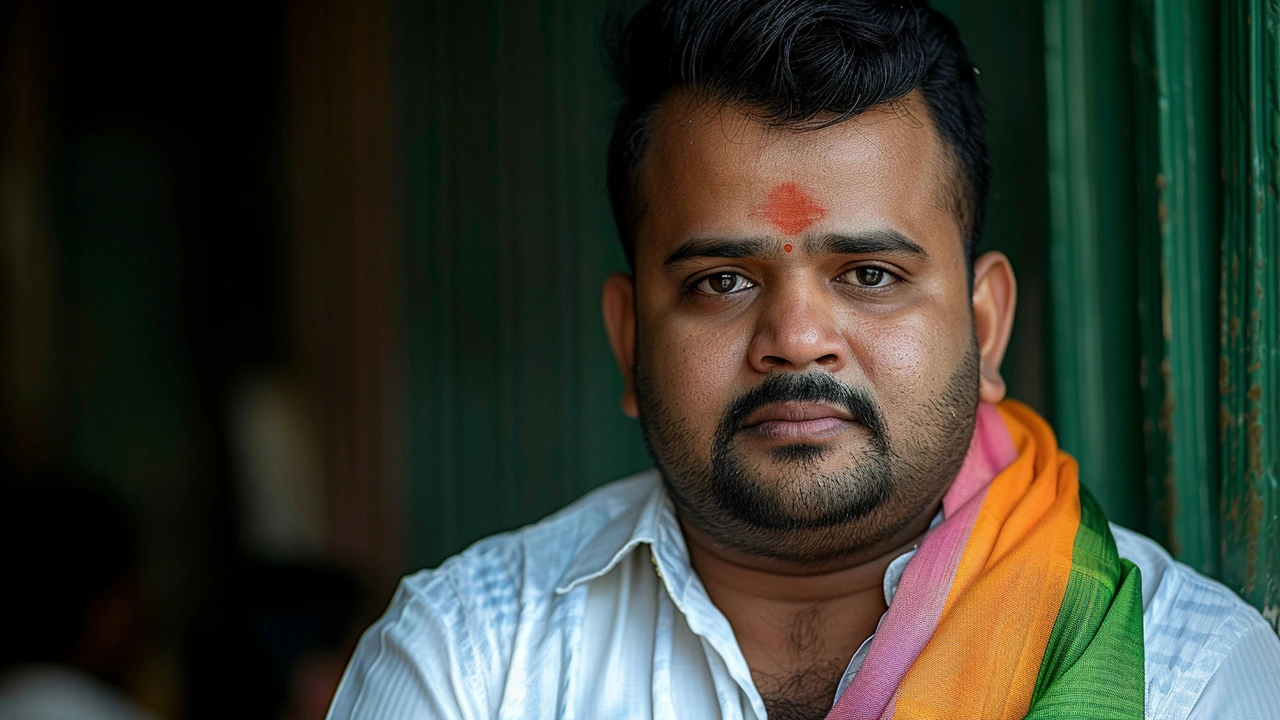Political Tensions Escalate in Karnataka Amidst Allegations of Video Leak Involving D K Shivakumar and Prajwal Revanna
 May, 7 2024
May, 7 2024
Scandal and Dispute in Karnataka's Political Arena
In a startling turn of events that has sent ripples through Karnataka's political landscape, JD(S) Karnataka chief H D Kumaraswamy has called for the immediate dismissal of Deputy Chief Minister D K Shivakumar. This demand arises in connection with Shivakumar's alleged involvement in the leak and distribution of controversial videos allegedly featuring MP Prajwal Revanna in compromising situations with several women. This scandal has not only tarnished the image of the individuals directly involved but has also ignited fierce political debates and controversies in the region.
Accusations don't stop at merely leaking videos. Kumaraswamy has also implicated Shivakumar in the dissemination of a notorious video related to another political figure, former BJP minister Ramesh Jarkiholi. The intertwining of these accusations points to a larger narrative of political sabotage and raises serious questions about the ethical conduct and integrity of those in power. This has led to Kumaraswamy vehemently questioning Shivakumar's role and influence within the political spectrum of Karnataka.
Praful Revanna and the Shadow of Controversy
At the heart of this controversy is Prajwal Revanna, a Member of Parliament and a figure who has now found himself embroiled in allegations of sexual abuse. The Special Investigation Team (SIT) is currently investigating three cases of sexual assault against Revanna. The complexity of these accusations is compounded by the arrest of Revanna's father, H D Revanna, on charges related to the kidnapping of one of the alleged victims. This development occurred on May 5th and has since added layers of intrigue and speculation about the case.
The involvement of family members in the allegations and the intricacies of the cases themselves make this situation particularly explosive in terms of political consequences and public interest. The people of Karnataka are keenly observing how these cases are being handled, as any misstep might reflect broader implications on governance and public trust in state institutions.
Kumaraswamy's Stance and Political Implications
H D Kumaraswamy, in his staunch advocacy for justice, has not only called for Shivakumar's resignation but has also raised significant doubts about the efficacy and impartiality of the investigations led by the SIT. His demands extend beyond mere resignation. Kumaraswamy seeks a thorough reassessment of how sexual abuse cases, particularly those involving high-profile political figures, are handled by state judicial and investigative bodies. In making these demands, Kumaraswamy seems to aim at restoring transparency and trust in the process, a move that is watched closely by both his adversaries and supporters within the political community.
The wider political implications of these accusations and the subsequent investigations could be substantial. They might affect alliances, influence voter behavior, and could even shift the balance of power in upcoming elections. The degree to which these events will shape Karnataka politics remains to be seen, but what is clear is that the effects are likely to be profound and lasting.
Public and Media Response
The public outcry and media coverage surrounding these scandals have been extensive. Social media platforms and news outlets are abuzz with discussions, debates, and speculation about the future of those involved and the political landscape of Karnataka. This constant media scrutiny puts additional pressure on investigative bodies and the judicial system to act swiftly and transparently.
In such high-stakes scenarios, the role of the media and public opinion cannot be understated. They play a critical role in shaping the narrative and potentially influencing judicial outcomes. The unfolding of this controversy is a testament to the complex interplay between politics, justice, and media in India, highlighting the challenges and responsibilities of those who wield power.
Conclusion
As this political drama continues to unfold, the eyes of the nation remain fixed on Karnataka. The outcomes of these controversies might very well redefine the political alignment and the administrative ethos of the region. Kumaraswamy's call for accountability and transparency in the political realm, though controversial, underscores a crucial moment in Karnataka’s political narrative, making this not just a regional issue, but a significant chapter in the political history of India.